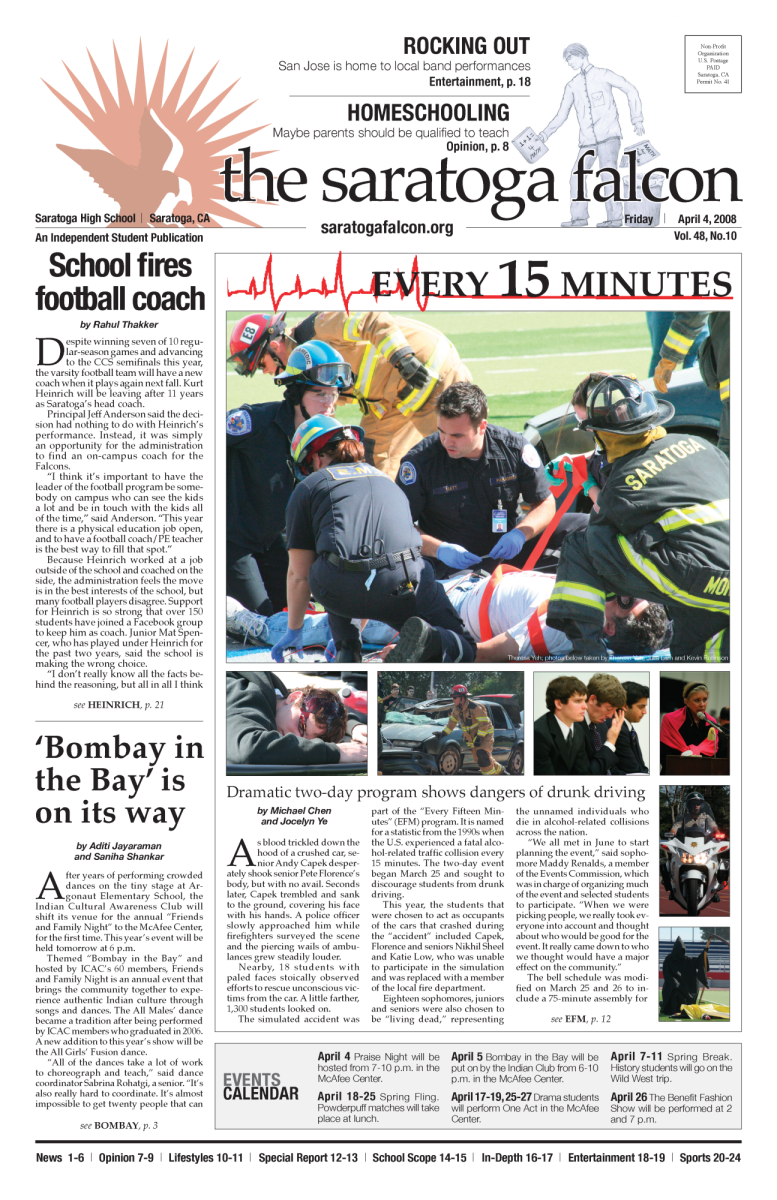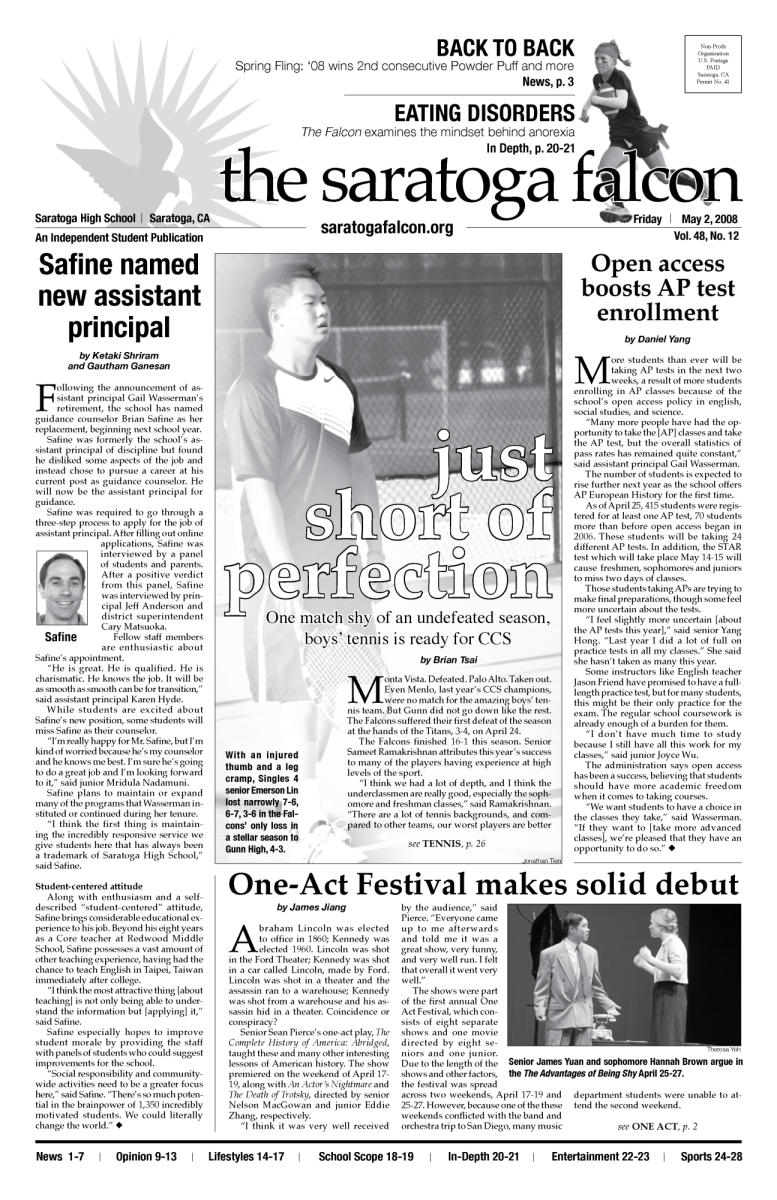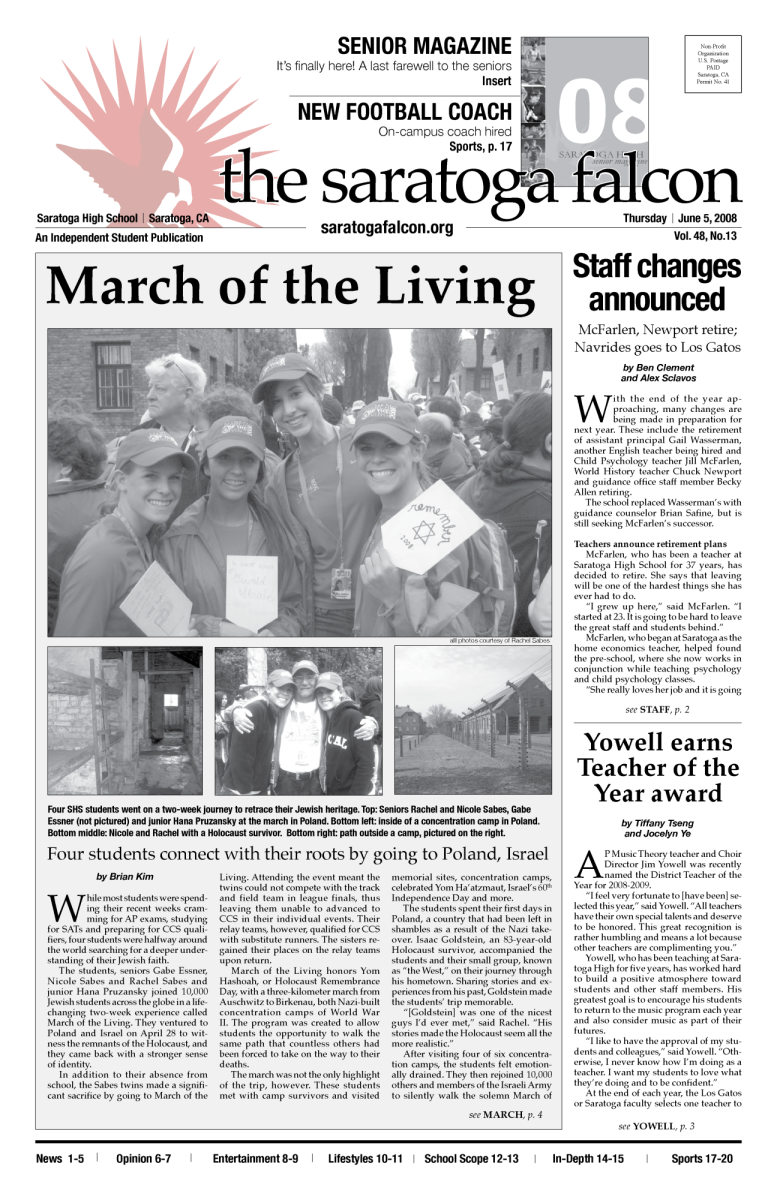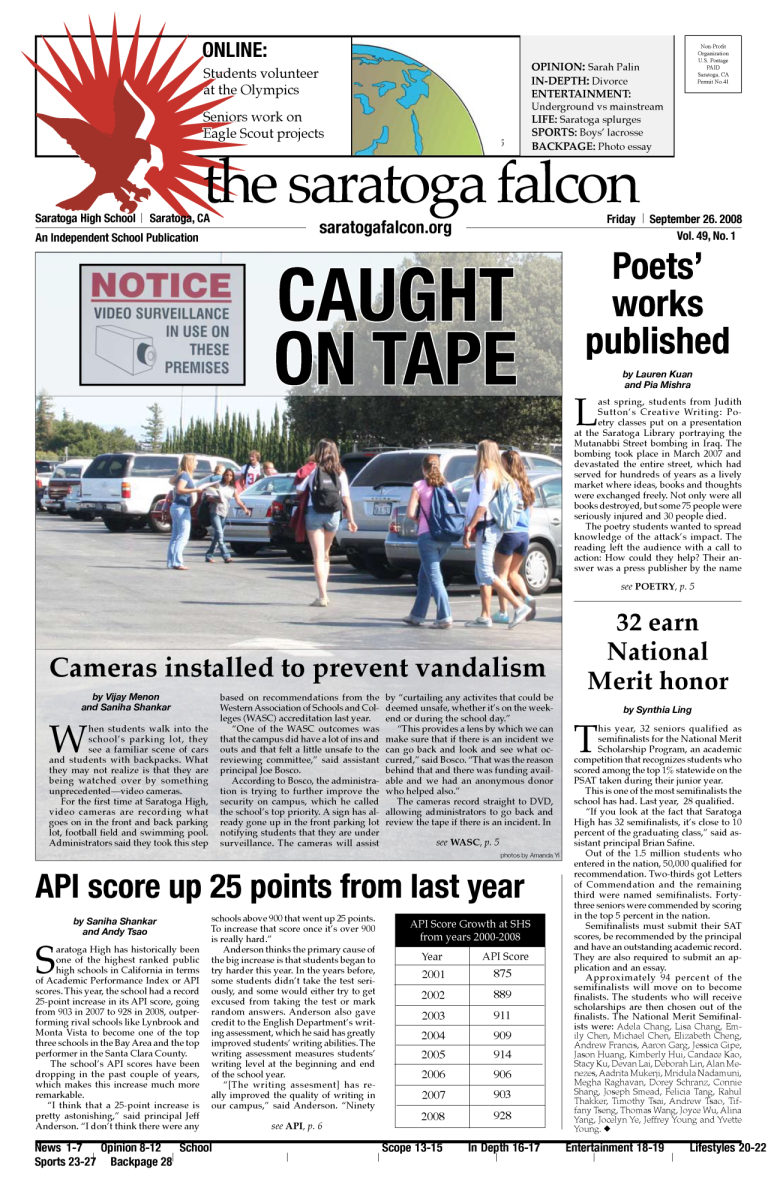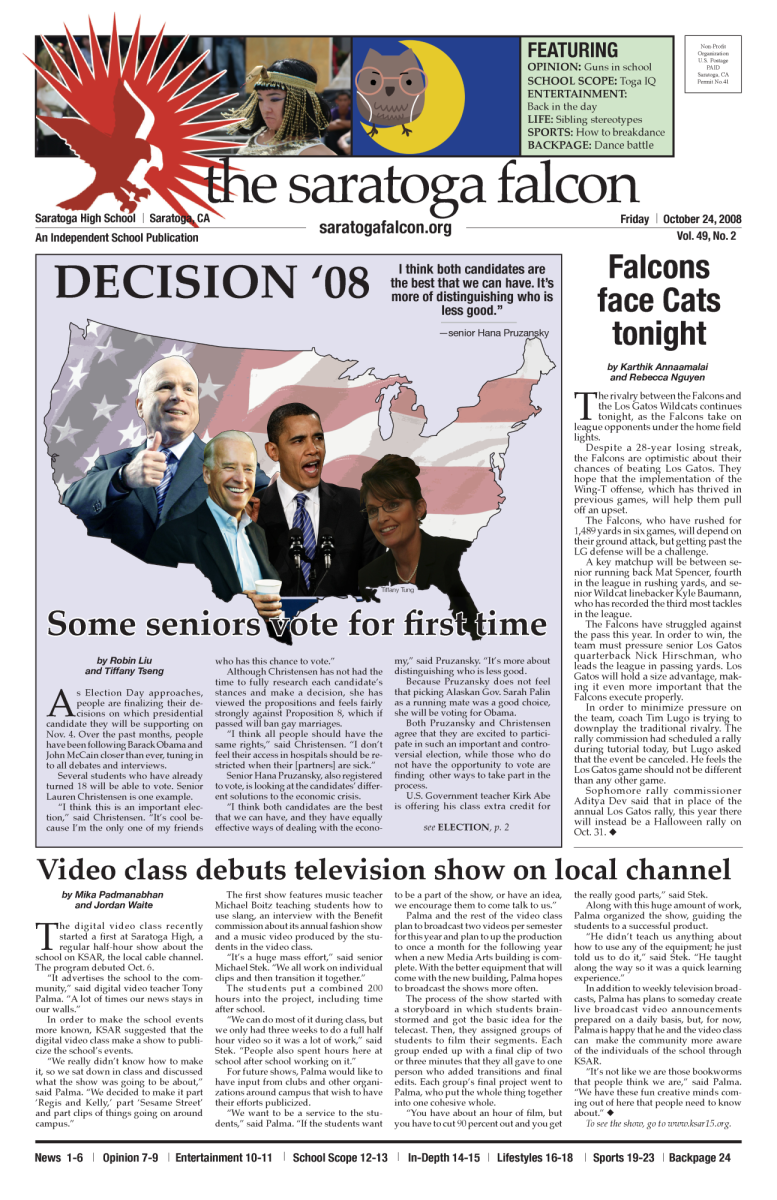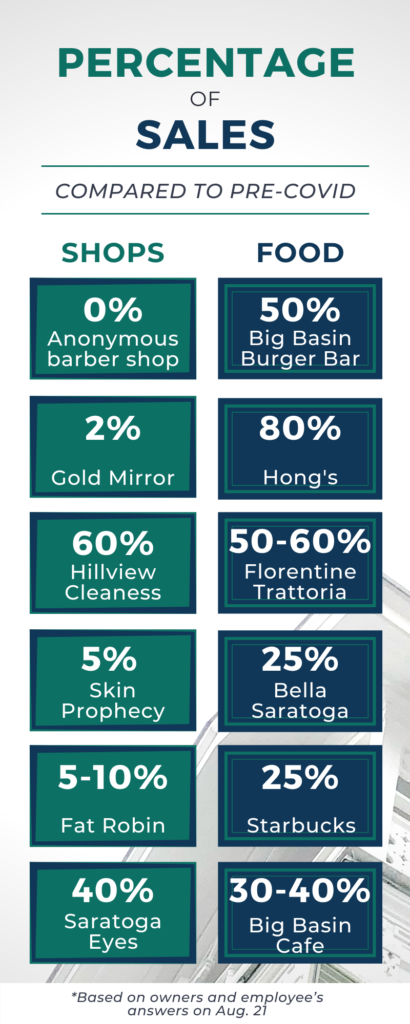As patrons walk into Big Basin Burger Bar, the sound of music intermixing with the sizzling of grills may be the only remnant of what the restaurant was like before COVID-19.
All else has changed. In accordance with public health regulations, the tables have been moved outside, while the employees wear masks and gloves, assiduously avoiding contact with coworkers and customers alike.
Restaurants and stores in Saratoga have gone through drastic changes since the virus’s outbreak. Despite the valiant attempts to adapt, many businesses face uncertain futures.
Janice Albright opened Big Basin Burger Bar in 2015 and has been doing well since, but when Governor Gavin Newsom mandated restaurants in the state to do take-out only on March 16, sales at the Big Basin Burger Bar went down by 80 percent within two days. Albright was forced to let go of employees and cut down on supply orders.
For the first few months, the business had to survive on take-out orders only. Albright said that she was happy when the county began to allow outdoor dining on June 12, enabling her to immediately call back more employees.
Today, patrons can either eat outdoor or order take-out. Despite this, sales remain about 50 percent below their pre-quarantine levels, and Albright has kept only 70 percent of her workers.
Although the revenue was not enough to cover rent and other business operation costs, Albright was able to obtain a Paycheck Protection Program loan from the federal government that kept her business going for the first few months. Now, the Economic Injury Disaster Loan, provided by the U.S. Small Business Administration in response to COVID, is helping her stay open.
“It is a terrible time,” Albright said. “We do whatever we can do to stay open and survive, but it’s getting harder and harder.”
Victor Hong, the longtime owner of Hong’s Gourmet, said he had set aside capital reserves for a worst-scenario after the business survived earlier recessions. He estimates that his business will be able to use these reserves for six months or more.
“Hong’s has gone through three recessions: the dot-com bubble burst, the economic damage after September 11, and the 2008 stock market crash,” he said. “This is the fourth time, and I’ve learned from the past.”
To be sure, Hong is not expecting to make profit in the current climate, but his sales are slowly starting to grow as people begin to patronize the restaurant’s outdoor patio. Because of this, he is now able to pay rent for his space out of his own funds, unlike during the early stages of the pandemic when he had to use government aid.
“As long as I can break even, I’m happy. I want to thank our loyal customers for their unconditional support,” he said.
Returning to business has also come with even scarier problems.
In early August, senior Anthony Liu, who had been working at Big Basin Burger Bar for more than a month, received a text from his manager notifying him that a co-worker had contracted COVID-19.
“My employer made it mandatory for everyone to get tested,” Liu said. “Fortunately, we all tested negative, but my mom said I won’t be going back until cases drop to a safer level.”
In addition to having all employees tested, Albright closed the business for one day even though authorities said it was not necessary. According to Albright, no other employees contracted the disease.
Santa Clara County has issued guidelines that businesses must follow in order to operate; for instance, face coverings may only be removed when dining outdoors. In addition, a density limit of 250 square feet per employee and 500 square feet per customer has been implemented.
Albright said she often finds the regulations confusing. The county had first requested dividers between tables, but retracted this later on. The employees spent a week or two making complicated wooden structures, only to later learn they were unnecessary.
“I feel like the county doesn’t really know what to do,” she said. “The barber shop nearby opened for a few days before closing — the rules just keep changing.”
While the restaurants are uncertain about their future, personal care services and stores face even more devastating circumstances. The county had allowed salons to open for two days before mandating a closure of their indoor operations on July 15.
A barber shop owner who preferred to remain anonymous said that he has had zero percent business until Aug. 21, when he operated indoors despite the public health order mandating otherwise.
“There are people whose hair I’ve cut for 30, 40 years that I haven’t seen since March,” he said. “If we abide by the rules, then where can we make a living?” he asked.
Michelle Beck, owner of a picture frame shop named Gold Mirror, called the county’s regulations unfair and unnecessary. “They should let business owners figure it out for themselves,” she said.
Beck said her store is only making 2 percent of the store’s regular sales. While customers haven’t patronized her store, she is frustrated that they have supported an outlet like Home Depot, a big box store where she has seen people not wearing face masks.
Albright also expresses concern that sometimes people are not socially distancing in her restaurant, in particular, high school students. Albright said she sees groups of students without masks, making her elderly patrons feel unsafe. She said that it is important for people to monitor how they behave in public and keep others in mind, especially during these times.
Albright hopes the business will be able to stay open, but fears for the future. The Big Basin Burger Bar has already faced months of affected sales.
“Restaurants like us learn to adapt to reality and embrace it,” Albright said. “I pray every day. Businesses may not survive if this goes on for a long time.”
























